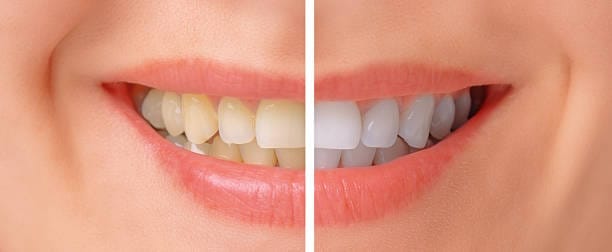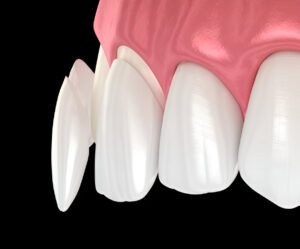A radiant smile can boost self-confidence and leave a lasting impression. When considering cosmetic dental treatments, many wonder, “Does composite bonding whiten teeth?” This article explores the relationship between composite bonding and teeth whitening, offering insights into achieving and maintaining a bright, confident smile.
Understanding Composite Bonding
Composite bonding is a cosmetic dental treatment that involves applying a tooth-coloured resin material to improve the appearance of teeth. This procedure can fix various dental issues, such as chipped, cracked, or stained teeth, gaps, and minor misalignments. The composite resin is carefully sculpted and bonded to the tooth, resulting in a natural-looking, durable enhancement.
The Role of Teeth Whitening
Teeth whitening is a procedure designed to lighten the shade of your teeth, removing stains and discolouration. Over time, teeth can become stained from consuming dark-coloured beverages, smoking, or simply ageing. Whitening can restore the brightness of your smile and give you a more youthful appearance. Whitening agents like hydrogen peroxide and carbamide peroxide are commonly used to achieve this effect safely.
Why Whiten Before Composite Bonding?
It’s generally recommended to whiten your teeth before undergoing composite bonding. The composite resin used in bonding is colour-matched to your natural teeth. If your teeth are discoloured or stained, the resin will match that shade, resulting in a less desirable outcome. By whitening your teeth first, you can achieve a more uniform and aesthetically pleasing result.
Additionally, composite resin materials do not respond to traditional teeth whitening treatments. While natural teeth can be effectively whitened, the composite resin remains unchanged in colour. Whitening your teeth after bonding can result in a mismatched appearance between the bonded teeth and the rest of your whitened smile.
Maintaining the Whiteness of Composite Bonding
Maintaining the appearance of composite bonding requires good oral hygiene and regular dental care. Here are some tips:
- Brush Twice a Day: Use a soft-bristled toothbrush and fluoride toothpaste to gently clean your teeth and bonding material.
- Floss Daily: Flossing removes food particles and plaque from between your teeth, helping to prevent staining.
- Avoid Staining Foods and Drinks: Limit your intake of coffee, tea, red wine, and other dark-coloured beverages. Rinse your mouth with water after consuming these to reduce the risk of stains.
- Regular Dental Check-ups: Visit your dentist every six months for check-ups and professional cleanings. They can polish your bonding to remove surface stains and keep it looking bright.
Alternatives to Composite Bonding
If you’re concerned about the potential for staining or the need for maintenance with composite bonding, there are alternative cosmetic dental procedures to consider:
- Porcelain Veneers: These offer a more stain-resistant option than composite bonding. They are custom-made in a lab and provide a longer-lasting solution.
- Teeth Whitening Treatments: Professional teeth whitening treatments can help maintain a bright smile before any bonding procedure.
Costs and Considerations
Composite bonding is often chosen for its affordability and quick application compared to other options like porcelain veneers. However, it’s essential to consider the long-term costs of maintenance and potential replacement. On average, composite veneers last between 5 and 7 years, but with good care, they can last up to 10 years. Porcelain veneers, although more expensive initially, may provide a more cost-effective solution over time due to their durability.
New Technologies in Teeth Whitening
Advancements in dental technology continually improve the effectiveness and safety of teeth whitening treatments. For instance, laser teeth whitening and advanced whitening gels provide more effective results with minimal sensitivity. Discuss these options with your dentist to find the best solution for your needs.
Real-Life Experiences
Patients who have undergone both teeth whitening and composite bonding often report a significant boost in confidence and satisfaction with their smile. Personal stories and testimonials can provide valuable insights and reassurance for those considering these treatments.
Conclusion
Composite bonding does not whiten teeth but provides a natural-looking enhancement to your smile. To achieve the best results, it’s advisable to whiten your teeth before bonding to ensure a uniform and aesthetically pleasing appearance. Maintaining the brightness of your smile requires good oral hygiene, regular dental visits, and avoiding staining foods and drinks. Considering the costs, maintenance, and available alternatives will help you make an informed decision about your cosmetic dental treatments.
Achieving a bright, confident smile is possible with the right combination of teeth whitening and composite bonding. Consult with your dentist to determine the best treatment plan for your unique needs and enjoy the benefits of a radiant smile.
Achieve Your Brightest Smile with Moston Dental Practice
Ready to transform your smile? Schedule a consultation with Moston Dental Practice today. Our expert team will guide you through the best treatments for a radiant, confident smile. Don’t wait—contact us now to get started on your journey to perfect teeth!
Frequently Asked Questions
Can I whiten my composite bonding at home?
No, traditional at-home whitening kits do not affect composite bonding. The resin material in composite bonding does not respond to whitening agents, so you will need professional advice from your dentist for any whitening concerns.
How long does composite bonding last?
Composite bonding typically lasts between 5 to 7 years. With proper care, including good oral hygiene and regular dental check-ups, it can last up to 10 years.
Can stained composite bonding be polished?
Yes, your dentist can polish composite bonding to remove surface stains. However, if the staining is severe, they may recommend replacing the bonding material.
Is composite bonding reversible?
Yes, composite bonding is reversible. The procedure requires minimal preparation, and the resin material can be removed and replaced without permanently altering your natural teeth.
Does composite bonding damage natural teeth?
No, composite bonding does not damage natural teeth. It is a non-invasive procedure that preserves the structure of your natural teeth while enhancing their appearance.




